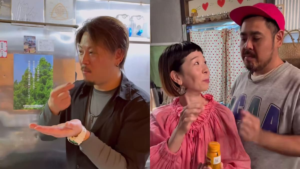The blend of mediums as seen in Figurative Arts; A Trans-formative exhibition
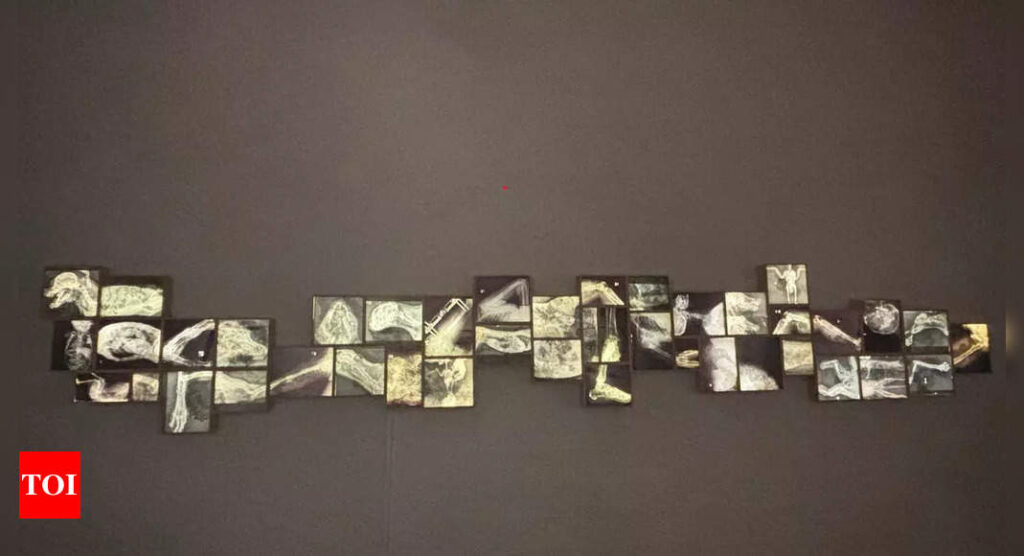
In Gallery Threshold, Sarvodaya Enclave, a unique art exhibition is currently in play where the meaning and ‘logic’ behind artworks is blurred for many exhibits. You could stand in front of the art, painting or sculpture, for hours, and you could come out with either 100 or 0 meanings and explanations behind what the artist did and why he or she did so.
From small artworks that show casings on top of a body’s head, to life-sized paintings that show the dual nature of humans and their wishes, there is something for all in ‘Trans-formative Vision’, curated by Yashodhara Dalmia.
An interconnectedness with ‘X-ray’ scans
Starting off in the gallery is the work of Anindita Bhattacharya, a brilliant and talented artist whose work and the story behind it is so poignant and heartfelt that it is sure to inspire people.
Anindita Bhattacharya’s art is X-rays of humans and animals that have been brought together in a distinct, unique way as if it is the body of a human, with some parts jumbled here and there.
But on taking a closer look one can see X-rays of birds, small cats, human skulls, some fingers, and much more.
And to put the poignant angle to the work, the animal X-rays are of small animals that Bhattacharya fostered or took in, and the human X-rays are of her nieces and nephews.
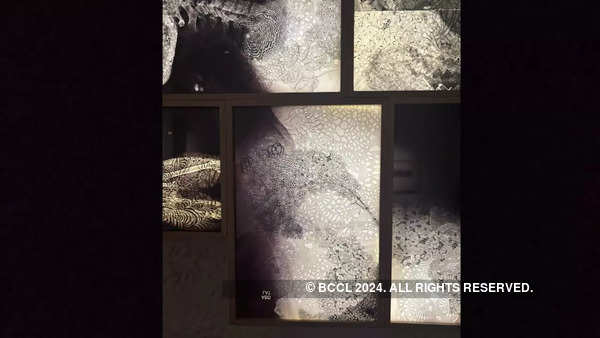
There are also small cut-outs all over the paper which were done by her, and it just puts a nice detailing into the whole artwork.
Ordinary humans in dreamlike forms
Then comes the artwork of Jogen Chowdhury which has men and women with flowing, dreamlike lines. His figures are relaxed, but on their faces is a sense of strength, determinism, and just something different. And what makes him stand apart is the rawness with which he portrays things he wants to. There is a sense of beauty and power in the calm yet strong forms of his artworks that make people wish to stay and just look at it a bit more.
A sculpture of cultures
Next up are the beautiful sculptures by Manjunath Kamath that bring together different cultures, visions, and materials. In the Gallery is a beautiful terracotta sculpture that looks chipped and broken, but is actually a holistic piece in itself, bringing together different materials, from different parts of the country, and each one makes up for a part of the sculpture’s body, bringing things together in beauty and harmony.
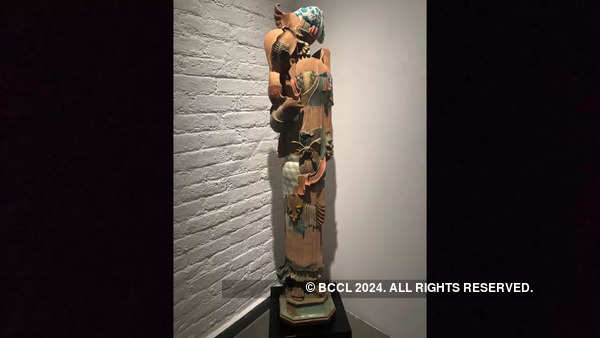
His work shows the interconnectedness of cultures and religions.
Dark emotions of the human mind
Mithu Sen’s art is about deep, dark emotions. Her pieces show parts of bodies wrapped in shadows, representing pain and identity. And in the exhibition, there is a small artwork by her with a figure casting something from its mind towards a flower that has been drawn with mini pins and dots.
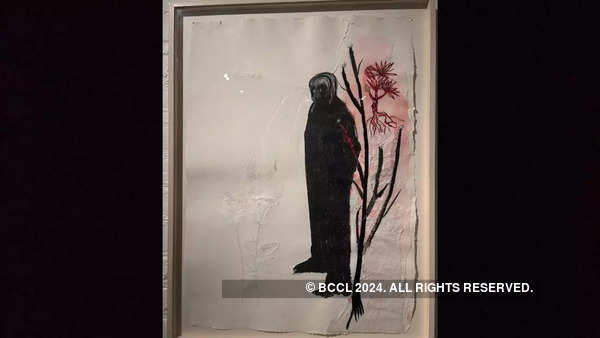
The human body and condition
Next up there is artist Sudhir Patwardhan whose works show the fragility of the human body, and also the everyday nature of humans. There are paintings that depict such deep sadness and despair that it feels harrowing to look at, and some set in a hospital that show ailing bodies and patients. His figures are captured in their everyday moments, simple and real.
Shadows and darkness, and the lives of ordinary
Rameshwar Broota’s artwork displayed in the exhibition is all about the haunting portrayal of elongated, thin figures. These gaunt shapes show the struggles of people, each so similar and yet living their different lives.
Vaikuntam’s coloured beauties
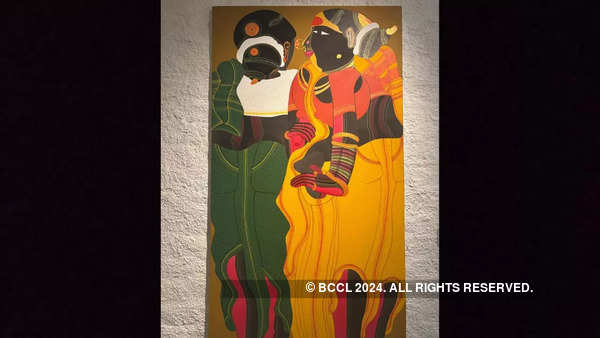
T. Vaikuntam’s art is inspired by the people of Telangana. His bold, colourful figures, especially the women, are vibrant and full of life. He turns everyday scenes into lively, theatrical moments, celebrating individuality and challenging traditional gender roles. It is all about the beauty of everyday life, the ordinary people, their not-so-ordinary attires, and their larger-than-life personas that he can paint.
The feminine through sculptures
Shanthi Swaroopini creates sculptures that explore the strength, beauty, and tapped fragility of women. Using materials like bronze and paper pulp, she balances the solid forms of her sculptures with delicate details. Her works show the complexities of being a woman and challenges the fixed ideas of identity.
Through her mini sculptures in the exhibition, there is a message of women harboring the most stresses and problems in their hearts and minds, and shedding the tensions from one side of stress and the process of how their eyes are still covered with more.
Bhakti poetry
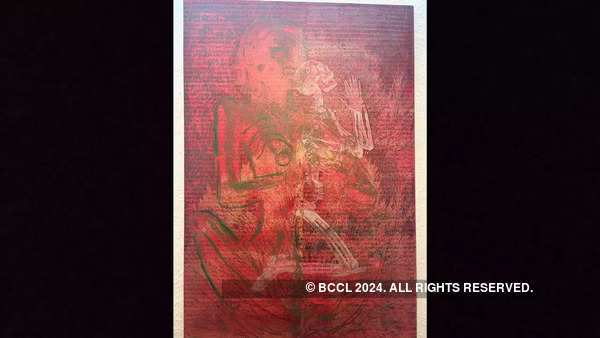
A grand artwork at the end of the Gallery is V. Ramesh’s portrayal of Karikal Amma, a Bhakti saint and poet. The painting portrays a woman who exists both in the spiritual and earthly worlds, her skeleton in the spiritual love for her Gods, and her body still in the Earthly plane. The artwork is done on a solid red background, with her poetry etched on the canvas, typed, handwritten, and even in some early language and symbols.
This artwork is simply amazing and needs to be viewed atleast twice.

